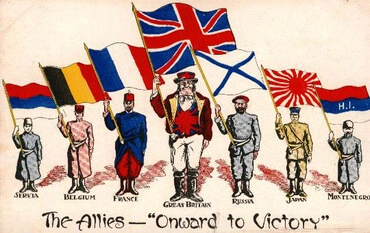1
When Jehoiakim, the son of Josiah, king of Judah, first became king, this word came from the Lord, saying,
2
This is what the Lord has said: Take your place in the open square of the Lord's house and say to all the towns of Judah, who come into the Lord's house for worship, everything I give you orders to say to them: keep back not a word;
3
It may be that they will give ear, and that every man will be turned from his evil way, so that my purpose of sending evil on them because of the evil of their doings may be changed.
4
And you are to say to them, This is what the Lord has said: If you do not give ear to me and go in the way of my law which I have put before you,
5
And give ear to the words of my servants the prophets whom I send to you, getting up early and sending them, though you gave no attention;
6
Then I will make this house like Shiloh, and will make this town a curse to all the nations of the earth.
7
And in the hearing of the priests and the prophets and all the people, Jeremiah said these words in the house of the Lord.
8
Now, when Jeremiah had come to the end of saying everything the Lord had given him orders to say to all the people, the priests and the prophets and all the people took him by force, saying, Death will certainly be your fate.
9
Why have you said in the name of the Lord, This house will be like Shiloh, and this land a waste with no one living in it? And all the people had come together to Jeremiah in the house of the Lord.
10
And the rulers of Judah, hearing of these things, came up from the king's house to the house of the Lord, and took their seats by the new door of the Lord's house.
11
Then the priests and the prophets said to the rulers and to all the people, The right fate for this man is death; for he has said words against this town in your hearing.
12
Then Jeremiah said to all the rulers and to all the people, The Lord has sent me as his prophet to say against this house and against this town all the words which have come to your ears.
13
So now, make a change for the better in your ways and your doings, and give ear to the voice of the Lord your God; then the Lord will let himself be turned from the decision he has made against you for evil.
14
As for me, here I am in your hands: do with me whatever seems good and right in your opinion.
15
Only be certain that, if you put me to death, you will make yourselves and your town and its people responsible for the blood of one who has done no wrong: for truly, the Lord has sent me to you to say all these words in your ears.
16
Then the rulers and all the people said to the priests and the prophets, It is not right for this man to be put to death: for he has said words to us in the name of the Lord our God.
17
Then some of the responsible men of the land got up and said to all the meeting of the people,
18
Micah the Morashtite, who was a prophet in the days of Hezekiah, king of Judah, said to all the people of Judah, This is what the Lord of armies has said: Zion will become like a ploughed field, and Jerusalem will become a mass of broken walls, and the mountain of the house like the high places of the woodland.
19
Did Hezekiah and all Judah put him to death? did he not in the fear of the Lord make prayer for the grace of the Lord, and the Lord let himself be turned from the decision he had made against them for evil? By this act we might do great evil against ourselves.
20
And there was another man who was a prophet of the Lord, Uriah, the son of Shemaiah of Kiriath-jearim; he said against this town and against this land all the words which Jeremiah had said:
21
And when his words came to the ears of Jehoiakim the king and all his men of war and his captains, the king would have put him to death; but Uriah, hearing of it, was full of fear and went in flight into Egypt:
22
And Jehoiakim the king sent Elnathan, the son of Achbor, and certain men with him, into Egypt.
23
And they took Uriah out of Egypt and came back with him to Jehoiakim the king; who put him to death with the sword, and had his dead body put into the resting-place of the bodies of the common people.
24
But Ahikam, the son of Shaphan, gave Jeremiah his help, so that he was not given into the hands of the people to be put to death.







